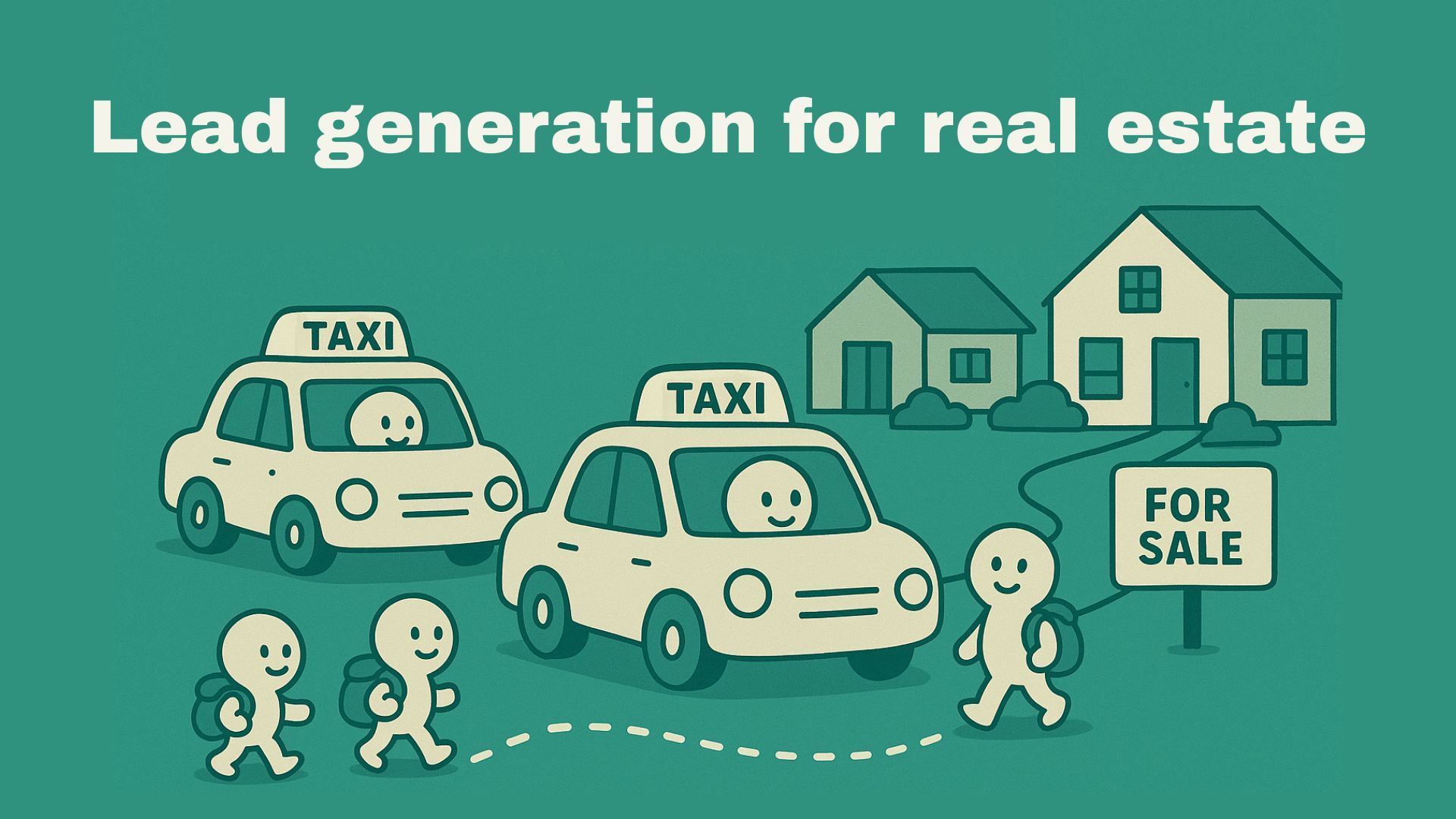

Sales doesn’t always happen over video calls. Some happen on highways, in office lobbies, or across coffee tables. While the world rushes to digitize everything, there's one role that still thrives on face-to-face connections: that’s the field sales executive.
They’re the ones navigating traffic, shaking hands, reading body language, and closing deals in real time. Armed with confidence, a killer pitch, and Google Maps, these field sales executives hustle in the real world; where every meeting counts and every mile matters.
Let’s understand the role of field sales executive in detail, shall we?
Who is a field sales executive?
{{callout-3}}
What are the responsibilities of a field sales executive?
- Prospecting
- Building customer relationships
- Presenting and demonstrating products
- Negotiating and closing sales
- Achieving sales targets
- Coordinating orders and deliveries
- Maintaining records
- Staying informed about market trends
- Managing travel and territory effectively

What key skills does a field sales executive need?
Communication skills
You need to be a strong communicator to engage with customers effectively. This also includes active listening to understand customer needs and negotiation skills to handle objections and close deals.
How to improve this skill?
- Join speaking clubs or workshops
- Role play common scenarios
- Use tools like Grammarly to improve emails or proposals
- Record and review calls to improve tone and clarity
Product knowledge
A field sales executive should have an in-depth understanding of the products or services being sold in order to educate customers about the features, benefits and value that the product offers.
How to improve this skill?
- If possible, use the product yourself
- Create a product FAQ for yourself
- Attend internal product meetings
- Stay updated on industry trends
Time management
Sales is a busy field with plenty of tight deadlines. You have to learn how to manage your time well, otherwise you’ll fall back.
How to improve this skill?
- Use a calendar or task app like Todoist to schedule meetings, follow ups etc.
- Prioritise tasks using 80/20 rule i.e. focus on 20% of activities that generate 80% results.
- Review your day each evening and see what you can plan better for the next day.
Resilience
Sales involves disappointments and rejections which can be tough to deal with. It’s essential to be resilient and not give up even when you’re faced with multiple setbacks.
How to improve this skill?
- Keep a success log to keep yourself motivated during tough times.
- Practice stress management techniques like taking short walks, journaling or mindful breathing.
- Talk to mentors or peers who have faced similar challenges.
How to become a field sales executive?
Step 1: Education
Most employers prefer candidates with at least a bachelor’s degree, typically in business, marketing, commerce, or a related field. However, in some industries (like FMCG, real estate, or telecom), a diploma or high school education combined with strong sales skills may be enough.
Step 2: Develop essential skills
Once you’ve obtained your education, work on developing essential skills. This includes communication skills, technical skills, time management and organizational skills, negotiation skills etc.
Step 3: Gain experience
After you have polished your skills, it’s essential to gain as much experience as you possibly can. Start with entry level roles like sales trainee or retail sales executive. These roles help you learn customer education, objection handling and closing.
Step 4: Start applying
Sales is one of those roles where networking is extremely crucial. Networking opens up endless opportunities both in terms of finding work and generating sales. Attend industry events, job fairs, and seminars whenever you can. Join LinkedIn groups or online communities related to sales and connect with experienced salespeople to learn from their experiences.
Once all the above steps are done and dusted, start looking for and applying to job openings in industries of your choice. Customise your resume to highlight your key skills and experience.
What KPIs help measure the success of field sales executives?
Sales revenue
This measures the total revenue gained from closed sales during a specific period of time. It reflects the field sales executive’s contribution to the growth of the company.
Conversion rate
This measures the percentage of leads or meetings that convert to actual sales. A high conversion rate indicates that the field sales executive is effective in closing deals.
Customer retention rate
This measures the number of customers who continue to buy over time. This reflects customer satisfaction.
Sales cycle length
This measures the average time it takes to close a deal from the initial contact to final sale. Shorter sales cycles usually indicate higher efficiency and better lead qualification.
Number of customer visits/meetings
This measures the number of in person meetings with customers. Consistent meetings are essential in field sales for building strong customer relationships.
What tools do field sales executives use?
CRM tools
These tools help keep customer data in one place, automate follow ups and track deal stages efficiently.
Example: Superleap, Salesforce
Route planning and mapping tools
These tools help reduce travel time, minimise missed appointments and boost daily productivity.
Example: Badger maps, Google maps, MapMyCustomers
Mobile productivity and note taking apps
These tools help capture notes and manage tasks on the go, thereby ensuring that nothing is forgotten between meetings or travel.
Example: Notion, OneNote
Communication tools
These tools aid in clear communication even when you are on the road.
Example: Slack, Microsoft teams
Sales enablement and presentation tools
These tools help in delivering engaging pitches and access sales materials.
Example: Canva, Showpad, Powerpoint
Inventory and order management tools
These tools help in tracking stock levels and process orders in real time.
Example: Orderhive, Quickbooks Commerce
{{callout-2}}
Field sales executive vs Inside sales executive
What challenges do field sales executives face?
Multiple rejections and burnout
Repeated rejections can negatively affect your motivation and confidence and even lead to burnout.
Solution: Try to view rejection as an opportunity to learn. Regularly refine your pitch to see what works better. Set smaller goals like the number of visits/meetings per day to feel a sense of accomplishment.
Difficulty with technology adoption
You may struggle to use technologies like CRM or sales tech tools.
Solution: If possible, request for hands-on training sessions. Start by learning core features like logging calls, setting reminders, tracking follow-ups. You can also learn from more experienced peers.
Meeting sales targets in highly competitive markets
It can be difficult to close deals in saturated or competitive markets.
Solution: Highlight the unique benefits that your product offers and not just features. Take time to understand the customer’s pain points and tailor solutions accordingly. Also, referrals from happy customers can open doors for more opportunities especially in tough markets.
Limited access to real time data
The lack of updated inventory, pricing or customer history during visits can pose hurdles.
Solution: Use mobile CRMs to access real time data no matter where you are. Also, make sure to sync your CRM regularly and download offline content when going to low signal areas.
Poor time and route management
Not scheduling tasks/visits properly can lead to missed meetings, wasted time and/or travel.
Solution: Use route planning apps like Google maps or MapMyCustomers. Try to group meetings by location and schedule buffer time between appointments. And also make it a point to review and optimise weekly plans in advance to avoid last minute issues.
Inconsistent lead quality
Chasing unqualified leads leads to low conversion rates and wasted time.
Solution: Use lead qualification frameworks like BANT or CHAMP. Also, work closely with marketing or inside sales teams to refine lead criteria.
Career growth possibilities
Over time, with consistent efforts, you can grow into a variety of roles such as:
- Sales manager
- Key account manager
- Regional sales head
- Business development manager
A day in the life of a field sales executive
No two days are similar in any field sales executive’s professional life. But, let’s take a sneak peek into what a typical day in their life might look like.
8:00 AM: Planning the route, checking CRM updates.
10:00 AM: Customer meeting, product demo and Q&A
12:00 PM: Grabbing a bite, responding to emails
2:00 PM: Follow up visit with a warm lead
4:00 PM: Updating CRM, scheduling the next day’s calls
6:00 PM: Reflecting on what worked and what didn’t
Heading text
Nunc sed faucibus bibendum feugiat sed interdum. Ipsum egestas condimentum mi massa. In tincidunt pharetra consectetur sed duis facilisis metus. Etiam egestas in nec sed et. Quis lobortis at sit dictum eget nibh tortor commodo cursus.
Odio felis sagittis, morbi feugiat tortor vitae feugiat fusce aliquet. Nam elementum urna nisi aliquet erat dolor enim. Ornare id morbi eget ipsum. Aliquam senectus neque ut id eget consectetur dictum. Donec posuere pharetra odio consequat scelerisque et, nunc tortor.
Nulla adipiscing erat a erat. Condimentum lorem posuere gravida enim posuere cursus diam.
.svg)






